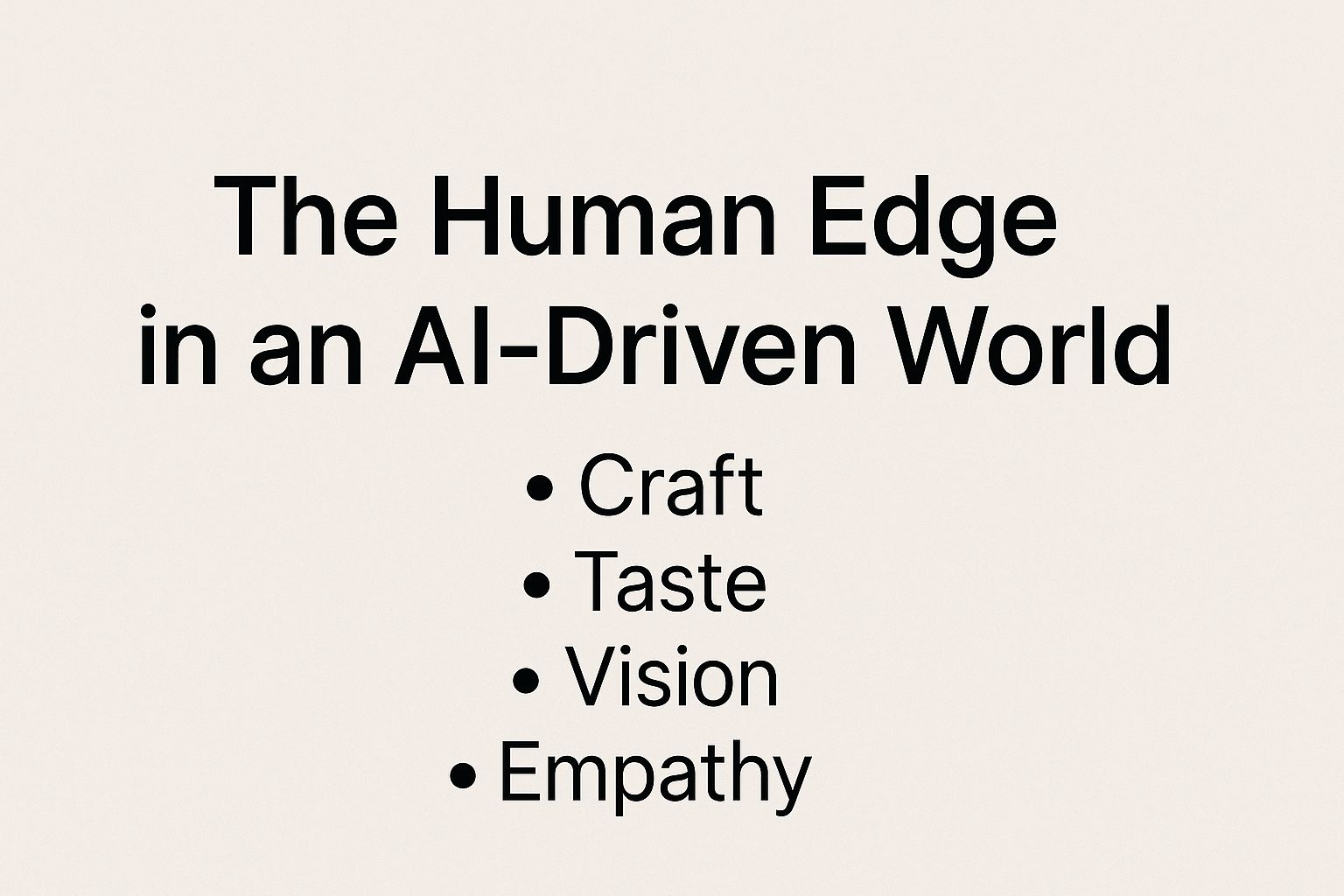AI is transforming how we work. It can design, write, analyse, and automate at speeds we could only dream of a few years ago. It is changing industries, reshaping roles, and giving businesses tools that make them faster, smarter, and more efficient.
But for all its power, AI cannot fully replace the human spark that makes great businesses stand out. Data can guide decisions, algorithms can produce options, and automation can handle repetitive tasks — but the heart of a business is still built by people. In fact, as AI becomes more common, the uniquely human skills of craft, taste, vision, and empathy will become even more valuable.
Craft
AI can help you generate an app design in seconds. You can prompt it to give you screens, color schemes, and layout suggestions. But craft is what turns that AI-generated concept into a smooth, intuitive user experience that customers love.
It’s the developer who tweaks every button placement so navigation feels natural. It’s the baker who uses AI to generate new cake recipes but still adjusts the proportions until the flavor is perfect. Craft is the patience, practice, and hands-on care that technology can’t automate.
Taste
AI can scan millions of social media posts to tell you what’s trending — maybe teal handbags are in this season. But taste is knowing which of those trends will actually resonate with your audience.
If you run a boutique in Lagos, taste is choosing the fabric that not only matches global fashion buzz but also works with the climate, the culture, and your customers’ personal style. It’s the photographer who uses AI editing tools but knows when to leave in the soft shadow because it makes the portrait feel authentic. Taste comes from context, not just data.
Vision
AI can create a business plan, suggest marketing strategies, and even predict potential markets. But vision is the ability to see what doesn’t exist yet and believe in it enough to make it real.
It’s the entrepreneur in Nairobi who sees an empty lot and imagines a café where young professionals work, network, and collaborate. AI can help design the floor plan and forecast customer traffic, but it can’t supply the dream, the courage, or the persistence to build it.
Empathy
AI can analyse customer reviews and detect frustration in a client’s tone during a call. It can even suggest a polite response. But empathy is understanding the story behind that frustration.
Maybe the delivery was late and the customer sounds short-tempered — not because they dislike your service, but because they have a sick child at home. In African markets especially, business is deeply personal. We remember birthdays, check in on family, and follow up long after the sale. Empathy turns transactions into relationships.
The New Balance
AI is incredible at scale, speed, and precision. It can give you a head start on almost anything. But the businesses that thrive in the future will be the ones that combine AI’s capabilities with the irreplaceable human skills of craft, taste, vision, and empathy.
Let AI do the heavy lifting. Let your humanity shape the experience. That’s where loyalty, creativity, and lasting impact come from.


